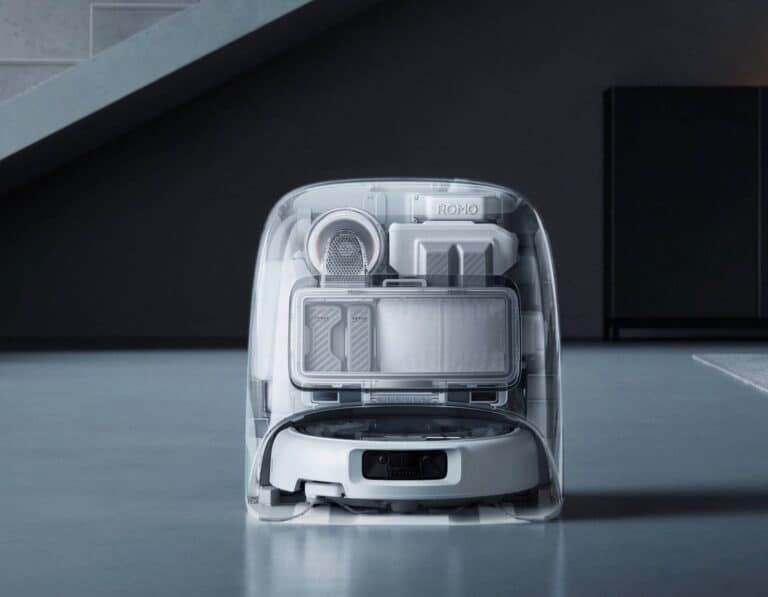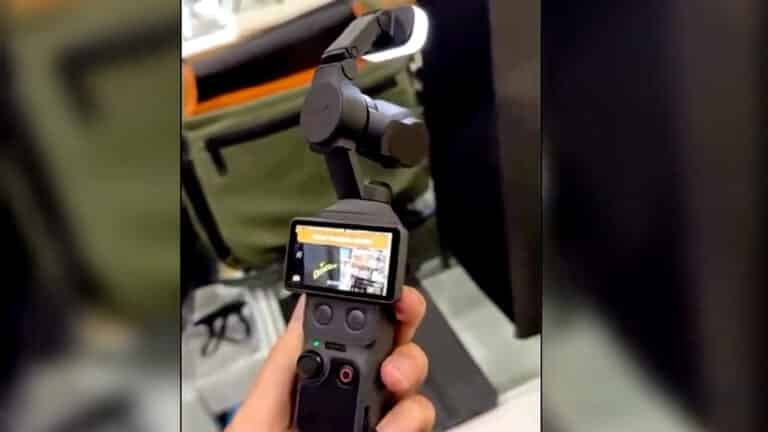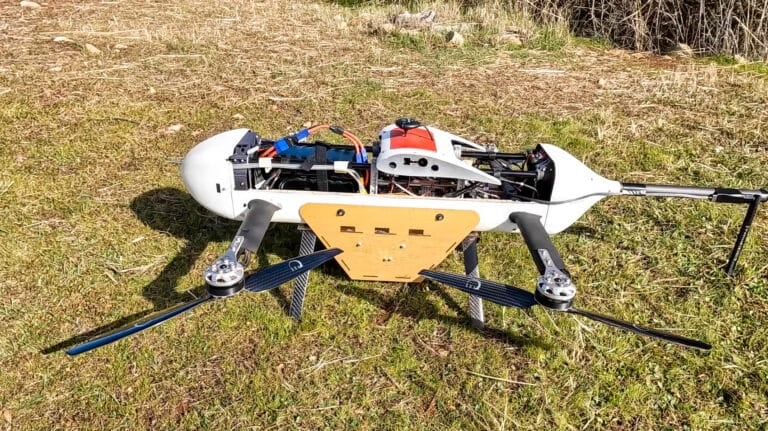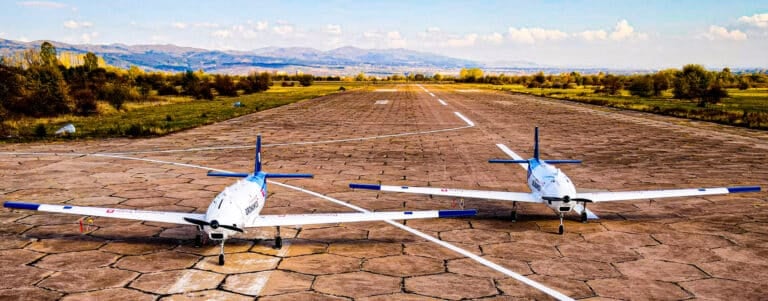No Audit, No Agency, No Due Process: DJI Reveals Why December 23 Ban Will Happen By Default

Check out the Best Deals on Amazon for DJI Drones today!
DJI published its most comprehensive public statement addressing the looming U.S. market ban, confirming that no federal agency has begun the security audit mandated by Congress—despite the company requesting the review nine months ago.
With just 30 days until the December 23, 2025 deadline, DJI’s official blog post reveals a bureaucratic trap: the National Defense Authorization Act required a security review but never assigned which agency should conduct it.
“DJI could face a market ban without any review or due process—not because of any wrongdoing, but because of a legislative gap and continued government inaction,” the company stated.
The DJI Security Audit That Never Happened
Section 1709 of the FY25 NDAA set December 23, 2025 as the deadline for a formal national security audit of Chinese drone manufacturers, including DJI.
If no audit is completed by that date, DJI will automatically be added to the Federal Communications Commission’s Covered List—a move that would ban new DJI products from entering the U.S. market.
DJI sent letters to five federal agencies in March 2025 requesting the mandated review. No agency responded or initiated the process.
“The problem lies in how the law was written: the NDAA did not assign any U.S. agency to actually conduct the audit,” DJI explained. “Despite our ongoing efforts, no agency has stepped forward to take on the responsibility.”
The company has repeatedly and publicly requested a fair, transparent, and timely audit throughout 2025. As far as DJI can determine, the process has not begun.
What Happens To Existing DJI Drones
Current DJI users would still be able to fly their existing equipment even if the company is added to the Covered List.
However, a listing could block future purchases of DJI products—even those already on shelves in the U.S.
“While your current drones would still function, the future availability of products and upgrades could be at risk,” DJI warned.
The FCC Covered List prohibition blocks new products from receiving FCC authorization, making it illegal to import them for sale. DJI products are already hard to find at major U.S. retailers, with most models showing as sold out.
Two Court Cases DJI Wants Americans To Understand
DJI addressed recent legal developments to counter what the company describes as unfounded allegations dating back to 2017.
The U.S. District Court for the District of Columbia recently issued a decision regarding the Department of Defense’s designation of DJI as a Chinese Military Company.
While the court allowed the designation to stand—based on DJI being recognized as a National Enterprise Technology Center and the DoD’s assertion of substantial dual-use applications—it rejected most of the DoD’s specific allegations.
The court found no basis for DoD’s claims that DJI is owned or controlled by the Chinese Communist Party, affiliated with China’s Ministry of Industry and Information Technology, or affiliated with a military-civil fusion enterprise zone.
DJI has lodged an appeal with the United States Court of Appeals for the D.C. Circuit. The company emphasized its long history of taking measures to prevent products from being used in combat.
“We were the first drone company to publicly denounce and actively discourage the combat use of drones, and we have never manufactured military equipment or marketed our products for combat,” DJI stated.
Separately, U.S. Customs and Border Patrol issues have created difficulties accessing products due to what DJI characterizes as a customs-related misunderstanding.
“This appears to be part of a broader Department of Homeland Security initiative to scrutinize product origins, particularly those of Chinese-made drones,” the company explained. “To be clear: this is a customs matter, not a ban, and the evidence clearly demonstrates DJI’s compliance with all existing laws.”
Why The Political Pressure Continues
DJI acknowledged that the situation is driven by broader geopolitical tensions surrounding technology and trade, combined with the company’s status as the global market leader headquartered in China.
“Kicking DJI out of the U.S. market would also benefit domestic drone manufacturers seeking to expand,” the blog post stated, “but we’ve never been opposed to their growth.”
The company supports domestic manufacturers focusing on sensitive U.S. government and military applications—areas for which DJI products are not developed or suited.
Removing DJI from the U.S. market without just cause would harm hundreds of thousands of drone operators who use the products for civilian, creative, and commercial purposes.
“Domestic manufacturers are not producing drones for these users, so they will be left without access to the reliable tools they need to conduct their work,” DJI emphasized.
The restrictions wouldn’t just affect drones. Access to DJI’s cameras and filmmaking equipment would be impacted too, showing how broad and untargeted these actions would be.
DJI Calls For Extension Or Immediate Action
DJI has been calling for the mandated audit since the FY25 NDAA was signed into law. The company has engaged with government officials throughout the year, urging a fair, transparent process.
“Time is running out—and a proper audit cannot realistically be completed in the short period remaining before the deadline,” DJI stated. “That’s why we are now also calling for a reasonable extension of the deadline to make a genuine, fact-based review possible.”
The company emphasized it remains open to dialogue with the Administration on additional measures to ensure products continue to lead on data security. DJI users can read about independent security audits and certifications conducted on DJI products since 2017 from the company’s Trust Center.
DJI is urging users to make their voices heard by contacting lawmakers. “If you’ve already spoken up, ask three friends who use DJI products to do the same,” the company requested.
DroneXL’s Take
This blog post represents DJI’s most direct communication with American users about the December 23 deadline—and it confirms what we’ve been reporting for months: the security audit mandated by Congress never started.
We’ve been tracking and have reported about this deadline since December last year. Recently, the stakes were raised as the FCC granted itself retroactive ban powers in late October. DJI’s public acknowledgment that no federal agency has begun the review—despite March 2025 letters to five agencies—validates our October analysis that this ban will occur through bureaucratic inaction rather than evidence-based security findings.
The legislative gap DJI describes is particularly damning. Congress created a deadline and mandated a determination but didn’t assign responsibility for conducting the actual review. That’s not security policy. That’s a regulatory trap designed to produce a predetermined outcome without requiring anyone to defend it publicly.
Consider what we now know: No agency has begun the mandated security assessment. DJI has repeatedly requested the review. The December 23 deadline approaches. And rather than complete the audit or extend the timeline, federal agencies are simply letting the clock run out.
This mirrors the pattern we documented when DJI launched an urgent Instagram campaign explaining the audit was never formally assigned to any U.S. agency in the NDAA bill. Nearly a year has passed since Congress established this one-year review window, and according to multiple reports, no formal assessment has begun.
The parallels to what we cover at our sister site EVXL are impossible to ignore. Just as the U.S. moved to ban Chinese EVs citing security risks, and the EU imposed tariffs up to 45% on Chinese electric vehicles, we’re watching the same playbook unfold in the drone industry. Whether it’s Chinese-made cars or Chinese-made drones, governments are using national security justifications to erect barriers—sometimes through actual security reviews, sometimes through administrative deadlines that trigger automatic bans.
DJI’s shell company network—which security researcher Konrad Iturbe has documented through frequency fingerprinting analysis—represents the company’s response to this regulatory pressure. Companies like Skyany, Skyrover, Cogito, Spatial Hover, and others are selling DJI-designed drones manufactured in Malaysia under alternative brand names. The FCC’s new component parts rule will shut down those workarounds once DJI joins the Covered List. That’s appropriate enforcement against regulatory evasion.
But the audit question remains fundamental: should a company controlling 76-90% of the U.S. consumer drone market be banned through bureaucratic inaction rather than evidence-based security findings?
The NDAA required a determination about whether DJI poses an unacceptable risk to national security—not an automatic ban triggered by administrative neglect. The court ruling DJI references is instructive here: the judge rejected most of the DoD’s specific allegations while allowing the designation to stand based on theoretical dual-use capabilities.
If the evidence for serious security threats existed, federal agencies would have completed this review months ago. The silence suggests something different: lobbying pressure from domestic manufacturers has created political conditions where no agency wants to publicly state that DJI doesn’t pose national security threats—even if the evidence supports that conclusion.
We’ve documented this dynamic extensively. Florida’s $200 million disaster—where the state destroyed functional public safety drones, provided only $25 million for inferior replacements, and never published the security analysis justifying it—provides a template for what happens when political theater replaces evidence-based policy.
Senator Tom Wright’s pledge to get DJI drones “back up and flying” and his repeated challenges to state officials to provide proof of security threats went unanswered. Secretary Pedro Allende couldn’t provide evidence to support the ban. Senator Jason Pizzo accused Allende of pimping for Skydio after the secretary held up promotional materials from the domestic manufacturer during testimony.
The human cost is real. First responders depend on DJI drones for search and rescue operations. Small businesses built their livelihoods around DJI equipment for aerial photography, infrastructure inspection, and agricultural monitoring. These operators will be left without alternatives if DJI is banned and domestic manufacturers continue serving only government contracts at premium prices.
We support the Drone Advocacy Alliance’s push for either immediate action or a deadline extension. A credible security assessment requires time for evidence review and meaningful dialogue. The original legislation called for a thorough, evidence-based determination—not a ban triggered by bureaucratic neglect or a 30-day rush job that would be equally problematic.
The December 23 deadline will arrive in one month. Either a federal agency will step forward to conduct the mandated review, Congress will extend the timeline, or DJI will be automatically banned without any determination about actual security risks. The third option serves political interests but not security interests—and certainly not the interests of the hundreds of thousands of American drone operators who depend on this technology every day.
What do you think? Should DJI be banned through bureaucratic inaction, or does the company deserve the evidence-based security review Congress supposedly mandated? Share your thoughts in the comments below.
Discover more from DroneXL.co
Subscribe to get the latest posts sent to your email.
Check out our Classic Line of T-Shirts, Polos, Hoodies and more in our new store today!

MAKE YOUR VOICE HEARD
Proposed legislation threatens your ability to use drones for fun, work, and safety. The Drone Advocacy Alliance is fighting to ensure your voice is heard in these critical policy discussions.Join us and tell your elected officials to protect your right to fly.
Get your Part 107 Certificate
Pass the Part 107 test and take to the skies with the Pilot Institute. We have helped thousands of people become airplane and commercial drone pilots. Our courses are designed by industry experts to help you pass FAA tests and achieve your dreams.

Copyright © DroneXL.co 2026. All rights reserved. The content, images, and intellectual property on this website are protected by copyright law. Reproduction or distribution of any material without prior written permission from DroneXL.co is strictly prohibited. For permissions and inquiries, please contact us first. DroneXL.co is a proud partner of the Drone Advocacy Alliance. Be sure to check out DroneXL's sister site, EVXL.co, for all the latest news on electric vehicles.
FTC: DroneXL.co is an Amazon Associate and uses affiliate links that can generate income from qualifying purchases. We do not sell, share, rent out, or spam your email.














